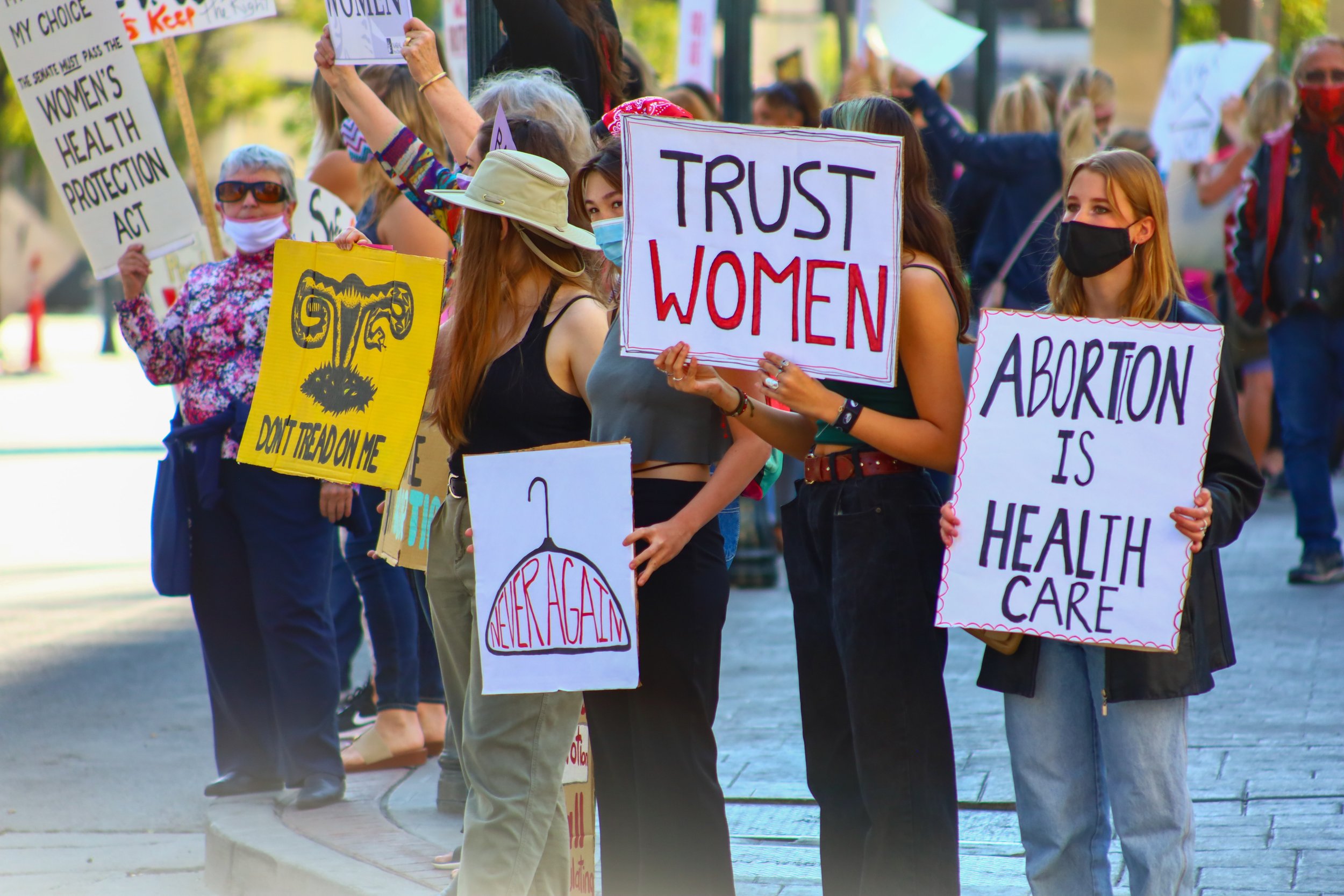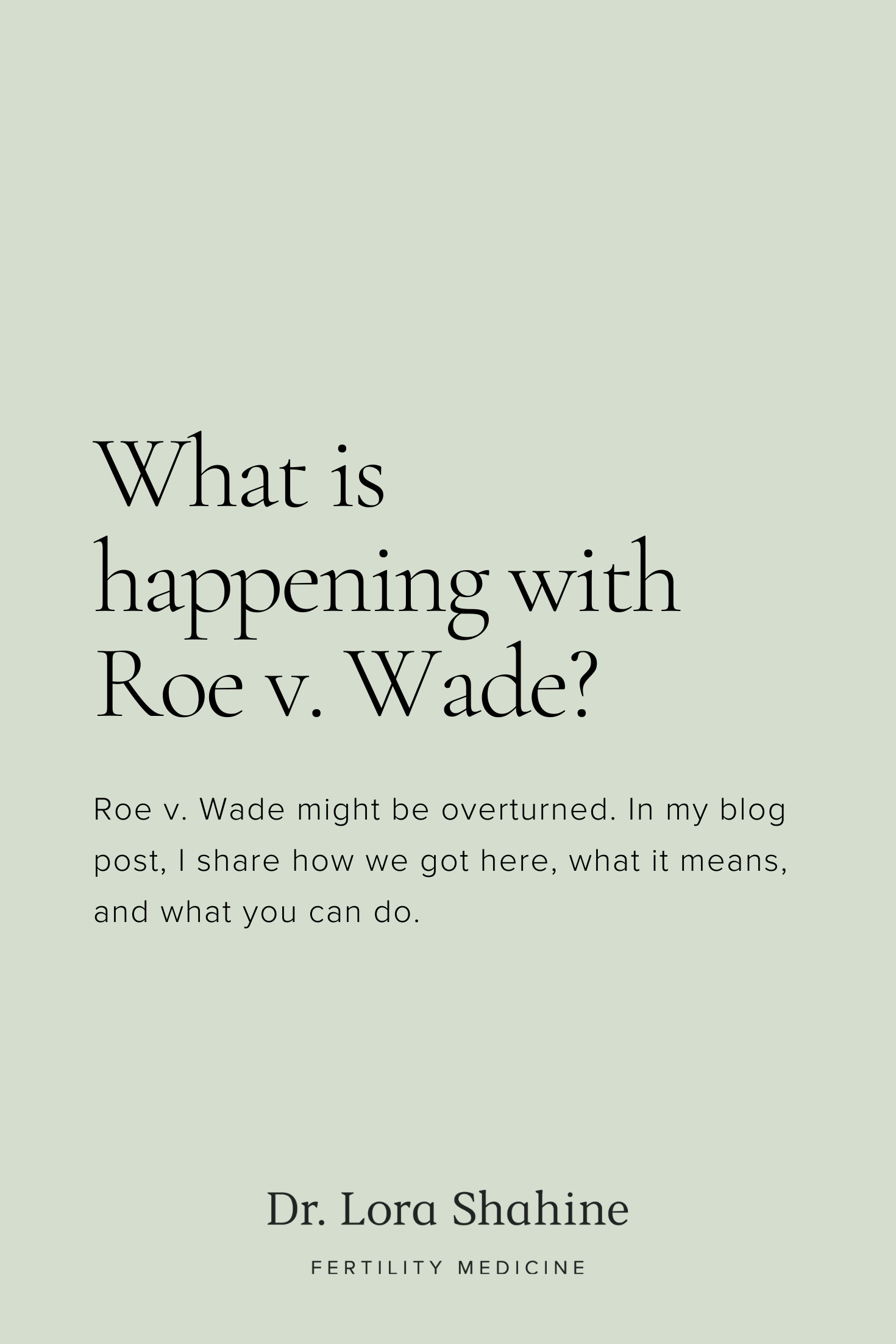What is Happening with Roe v. Wade?
It’s the first week of May 2022, and I want to talk about what’s happening with Roe v. Wade.
About me: I'm a double board-certified obstetrician-gynecologist and reproductive endocrinologist who has been helping people build their families for over 15 years. For as long as I’ve practiced medicine, abortion rights have been protected at a federal level. As of this week, this federal protection is under serious scrutiny—an attack on the most severe level.
I’m utilizing my platform to help you understand how we got here, what it means, and what you can do.
What happened?
On May 2, 2022, Politico released a leaked document from the Supreme Court of the United States. This document is the first draft of a majority opinion on the ruling for Dobbs v. Jackson Women’s Health Organization, and as part of this potential ruling, abortion rights could be gone.
Why is Roe v. Wade going to be potentially overturned?
The Supreme Court has been deliberating the case Dobbs v. Jackson Women’s Health Organization since December 2021. This case is an effort to ban abortions after 15 weeks of gestation in the state of Mississippi. In the leaked draft opinion, not only would the majority of the Court vote in favor of limiting access to abortion, but they also argue that Roe v. Wade should be overturned.
After this draft opinion ruling was leaked, the Supreme Court acknowledged that this leak was real.
How did we get here?
Abortion is a contentious topic. Since 1973, it’s been protected on a federal level, but states have been able to make their own limitations on abortions, such as the Texas Heartbeat Act. There has been a growing movement to make abortions illegal again.
Roe v. Wade was a Supreme Court decision in 1973. The ruling on this particular case, out of the state of Texas, ended up setting the legal standard for all similar cases moving forward.
Before Roe v. Wade, the majority of states had legalized abortion in some way or another, but it had not been made legal in the state of Texas. Jane Roe (real name Norma McCorvey) sought medical help from a doctor for an abortion, but the doctor denied the treatment because it was illegal in Texas. Lawyers ultimately brought the case to the Supreme Court, stating that Roe would have been able to get an abortion if she was in another state besides Texas.
The majority of the Supreme Court (7 justices out of 9) voted to support Roe as a way to protect abortion rights on a federal level. At the time, it was not controversial since most states had abortion rights. Justice Harry Blackmun, who wrote the majority opinion on Roe v. Wade, stated the ruling’s acknowledgment of abortion rights being an issue of privacy and freedom: a woman should have the freedom to make private medical decisions with her doctor. He concluded the decision to terminate a pregnancy lies between the woman and her doctor, not the government.
After the ruling in 1974, 46 states actually had to amend their laws in order to comply with Roe v. Wade.
What does the 14th amendment have to do with Roe v. Wade?
Roe v. Wade relies on language from the 14th amendment to the Constitution to protect abortion rights.
Section one of the 14th amendment states:
All persons born or naturalized in the United States, and subject to the jurisdiction thereof, are citizens of the United States and of the state wherein they reside. No state shall make or enforce any law which shall abridge the privileges or immunities of citizens of the United States; nor shall any state deprive any person of life, liberty, or property, without due process of law; nor deny to any person within its jurisdiction the equal protection of the laws.
Due process has been used by the Supreme Court to strike down state legislation that restricts personal liberties and interests not explicitly mentioned in the Constitution, like the right to privacy.
The 1973 Roe v. Wade ruling relied on this clause when it concluded that prohibiting abortion violated a right to privacy under the Constitution by restricting a person’s ability to choose whether to have an abortion.
In simple terms, in the leaked document from the majority opinion in favor of limiting access to abortion in the state of Mississippi, Justice Alito argues that Roe v. Wade should be overturned based on the lack of support in the Consitution on any amendments to the Constitution. Those in favor of upholding Roe v. Wade cite the protections for due process and thus privacy keeps the decision for medical care like abortion between the doctor and patient in need of healthcare.
Isn’t Roe v. Wade the law?
Roe v. Wade is not legislation; it’s a Supreme Court decision that’s been upheld for nearly 50 years. The ruling in this case set the federal standard and precedent for other case rulings.
In the past, Supreme Court decisions have been overturned, but these new rulings have been in order to expand rights and liberties, including:
Brown v. Board of Education, which went back on a previous ruling to expand and protect education for anyone, regardless of race
Multiple anti-gay and same-sex marriage rulings from the Supreme Court were overturned in support of gay and same-sex marriage
These overturnings expanded freedoms and protected citizens. If Roe v. Wade is overturned, it will be the first time a Supreme Court ruling has been overturned to restrict freedom and choice. That is very concerning.
Why does this matter?
It’s important to note that Roe v. Wade’s overturning is not official yet, but it could go into effect as soon as June 2022.
There are states with trigger laws in place; if Roe v. Wade is overturned, there would be automatic restrictions on abortions in that particular state.
This is bigger than abortion rights. This ruling could also show additional opportunities to further limit reproductive rights based on how you define an embryo. We could be looking at restrictions on IUDs or other birth control methods. In my own practice, where I help people build families through fertility treatment, we could be looking at limited access to assisted reproduction and IVF.
Two percent of all babies born in the United States are born from assisted reproduction. This would affect many, many families. If embryos are given personhood laws before they’re transferred, we might not be able to freeze embryos in the future.
This is so much bigger than being pro-life or pro-choice. This is about respecting a doctor-patient relationship. If we take medical privacy away, I worry about what else can be taken away.
What can you do?
What is happening is very serious, and I never thought that I would see this in my lifetime. It’s taken me a while to process.
You can use your voice. Reach out to your legislatures at the city, state, and federal levels. Let your representatives know how you feel.
There are institutions and organizations that you could support financially, such as Planned Parenthood or the ACLU.
There’s still time for you to speak up.



